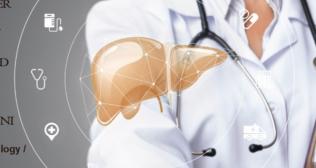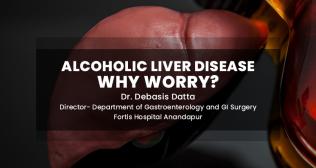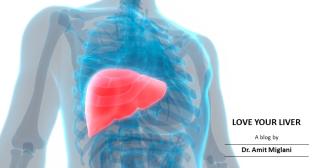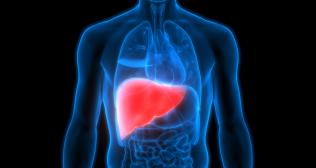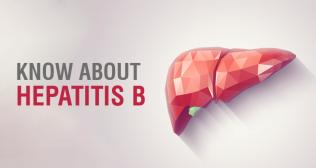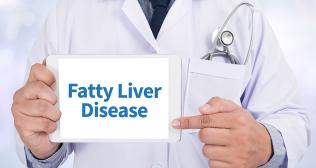
Understanding Acidic Burps: Causes, Symptoms, and Remedies
Introduction
Acidic burps, often accompanied by a burning sensation or sour taste, can be more than just an unpleasant inconvenience. Several factors can contribute to acidic burps, from dietary choices to lifestyle habits and medical conditions. However, if they occur too frequently, they may indicate underlying digestive issues that warrant attention.
Overview of the Digestion Process
Before we delve into the issues causing acidic burps, let’s understand the digestion process. Digestion begins in the mouth, where enzymes begin breaking down food. As food travels down the esophagus to the stomach, gastric juices further break down the food particles. This acidic environment kills bacteria and activates digestive enzymes, but in some people, it can cause digestive issues.
Common Digestive Issues That Cause Acidic Burps
- Acid Reflux/Gastroesophageal Reflux Disease (GERD): GERD occurs when stomach acid frequently flows back into the esophagus. This can irritate the esophageal lining, leading to heartburn, regurgitation, and acidic burps. Certain foods, such as spicy or acidic foods, caffeine, alcohol, and obesity, can exacerbate GERD symptoms.
- Hiatal Hernia: A hiatal hernia develops when a portion of the stomach protrudes into the diaphragm, disrupting the normal function of the lower esophageal sphincter (LES), which helps prevent stomach acid from refluxing into the esophagus. This can result in acid reflux and acidic burps.
- Peptic Ulcers: Peptic ulcers are open sores that develop on the stomach lining, small intestine, or esophagus. They are caused by Helicobacter pylori infection, prolonged use of nonsteroidal anti-inflammatory drugs (NSAIDs), or excessive alcohol consumption. Peptic ulcers may cause a burning sensation in the stomach and acidic burps.
- Gastritis: Gastritis is inflammation of the stomach lining, which can be acute or chronic. It is caused by infection, excessive alcohol consumption, prolonged NSAID use, or autoimmune diseases. Gastritis may lead to symptoms such as nausea, vomiting, abdominal pain, and acidic burps.
- Dyspepsia (Indigestion): Dyspepsia refers to discomfort or pain in the upper abdomen, often accompanied by bloating, nausea, and acidic burps. It is caused due to overeating, consuming spicy food, smoking, anxiety, or some medicines.
Acid Reflux Versus GERD
Acid reflux and gastroesophageal reflux disease (GERD) are two related but distinct conditions affecting the digestive system. While they share some similarities, they differ significantly in symptoms, causes, and treatment. Understanding these nuances is crucial for effective management and relief. Here’s a quick comparison of both conditions.
Symptoms
Acid Reflux
- Heartburn: A burning sensation in the chest after eating or while lying down
- Regurgitation: Reflux of sour-tasting fluid into the throat or mouth
- Burping or Belching: Frequent burping or belching after meals
- Dysphagia: Difficulty swallowing, often due to irritation in the esophagus
- Nausea: Occasional feelings of sickness or discomfort in the upper abdomen
GERD
- Frequent Heartburn: The burning sensation occurs more than twice a week
- Persistent Dysphagia: Prolonged difficulty or pain while swallowing
- Chronic Regurgitation: Frequent backflow of acid or food into the throat
- Chronic Cough: Persistent coughing spells, especially at night, due to irritation from stomach acid
- Laryngitis: Hoarseness, sore throat, or irritation of the vocal cords due to repeated acid reflux
- Asthma: Exacerbation of asthma symptoms, particularly coughing and wheezing
Causes
Acid Reflux
- Dietary Factors: Consumption of acidic or spicy foods, caffeine, alcohol, and large meals
- Obesity: Excess weight that increases abdominal pressure, pushing stomach contents back into the esophagus
- Pregnancy: Hormonal imbalances and increased abdominal pressure during pregnancy
- Hiatal Hernia: A portion of the stomach protrudes into the diaphragm, disrupting the natural barrier against reflux
- Smoking: Weakening of the lower esophageal sphincter (LES), allowing acid to flow back into the esophagus more easily
GERD
- Weakened LES: Chronic relaxation of the lower esophageal sphincter, causing frequent acid reflux
- Hiatal Hernia: The worsening of symptoms in GERD due to further weakening of the LES, disrupting the anatomy of the gastroesophageal junction
- Delayed Stomach Emptying (Gastroparesis): Slowed gastric emptying, leading to prolonged exposure of the esophagus to stomach acid
- Connective Tissue Disorders: Conditions like scleroderma affect the connective tissue in the esophagus, leading to GERD symptoms
- Pregnancy: Similar to acid reflux, hormonal changes and increased abdominal pressure during pregnancy contribute to GERD development
Treatment
Acid Reflux
- Lifestyle modifications, including avoiding spicy, acidic, fatty, or fried foods, smoking, excessive alcohol, and caffeine while opting for fruits, vegetables, lean proteins, whole grains, eating smaller meals, avoiding lying down after meals, and maintaining a healthy weight and avoiding tight clothes to reduce pressure on the abdomen
- Over-the-counter (OTC) medications like antacids, H2 receptor blockers, and proton pump inhibitors (PPIs) for short-term relief by neutralizing or reducing stomach acid production. However, it’s essential to use these medications under the guidance of a healthcare professional, as long-term use may have adverse effects
- Prescription medications, such as prescription-strength PPIs or prokinetics, for severe cases
- Sleeping with an elevated head to reduce nighttime reflux symptoms
- Practicing relaxation techniques, such as deep breathing, meditation, yoga, or tai chi, to help alleviate stress and improve overall digestive health
GERD
- Lifestyle modifications
- Medications like PPIs
- Surgery in cases with resistance to medication and lifestyle modifications or with complications like Barrett’s esophagus. Surgery helps strengthen the LES and correct hiatal hernias
- Stress management
To conclude, acidic burps can be indicative of various digestive issues, ranging from mild indigestion to more severe conditions such as GERD, peptic ulcers, or gastritis. Understanding the underlying causes of acidic burps is crucial for effective management and treatment. Individuals can alleviate symptoms and improve their overall digestive health by making dietary and lifestyle modifications, seeking medical advice when necessary, and addressing underlying health conditions. Consulting a doctor is advisable for accurate diagnosis and proper treatment plans.
Popular Searches :
Hospitals: Cancer Hospital in Delhi | Best Heart Hospital in Delhi | Hospital in Amritsar | Hospital in Ludhiana | Hospitals in Mohali | Hospital in Faridabad | Hospitals in Gurgaon | Best Hospital in Jaipur | Hospitals in Greater Noida | Hospitals in Noida | Best Kidney Hospital in Kolkata | Best Hospital in Kolkata | Hospitals in Rajajinagar Bangalore | Hospitals in Richmond Road Bangalore | Hospitals in Nagarbhavi Bangalore | Hospital in Kalyan West | Hospitals in Mulund | Best Hospital in India | Gastroenterologist in Jaipur | Cardiology Hospital in India
Doctors: Dr. Rana Patir | Dr. Rajesh Benny | Dr. Rahul Bhargava | Dr. Jayant Arora | Dr. Anoop Misra | Dr. Manu Tiwari | Dr. Praveer Agarwal | Dr. Arup Ratan Dutta | Dr. Meenakshi Ahuja | Dr. Anoop Jhurani | Dr. Shivaji Basu | Dr. Subhash Jangid | Dr. Atul Mathur | Dr. Gurinder Bedi | Dr. Monika Wadhawan | Dr. Debasis Datta | Dr. Shrinivas Narayan | Dr. Praveen Gupta | Dr. Nitin Jha | Dr. Raghu Nagaraj | Dr. Ashok Seth | Dr. Sandeep Vaishya | Dr. Atul Mishra | Dr. Z S Meharwal | Dr. Ajay Bhalla | Dr. Atul Kumar Mittal | Dr. Arvind Kumar Khurana | Dr. Narayan Hulse | Dr. Samir Parikh | Dr. Amit Javed | Dr. Narayan Banerjee | Dr. Bimlesh Dhar Pandey | Dr. Arghya Chattopadhyay | Dr. G.R. Vijay Kumar | Dr Ashok Gupta | Dr. Gourdas Choudhuri | Dr. Sushrut Singh | Dr. N.C. Krishnamani | Dr. Atampreet Singh | Dr. Vivek Jawali | Dr. Sanjeev Gulati | Dr. Amite Pankaj Aggarwal | Dr. Ajay Kaul | Dr. Sunita Varma | Dr. Manoj Kumar Goel | Dr. R Muralidharan | Dr. Sushmita Roychowdhury | Dr. T.S. MAHANT | Dr. UDIPTA RAY | Dr. Aparna Jaswal | Dr. Ravul Jindal | Dr. Savyasachi Saxena | Dr. Ajay Kumar Kriplani | Dr. Nitesh Rohatgi | Dr. Anupam Jindal |
Specialties: Heart Lung Transplant | Orthopedic | Cardiology Interventional | Obstetrics & Gynaecology | Onco Radiation | Neurosurgery |







